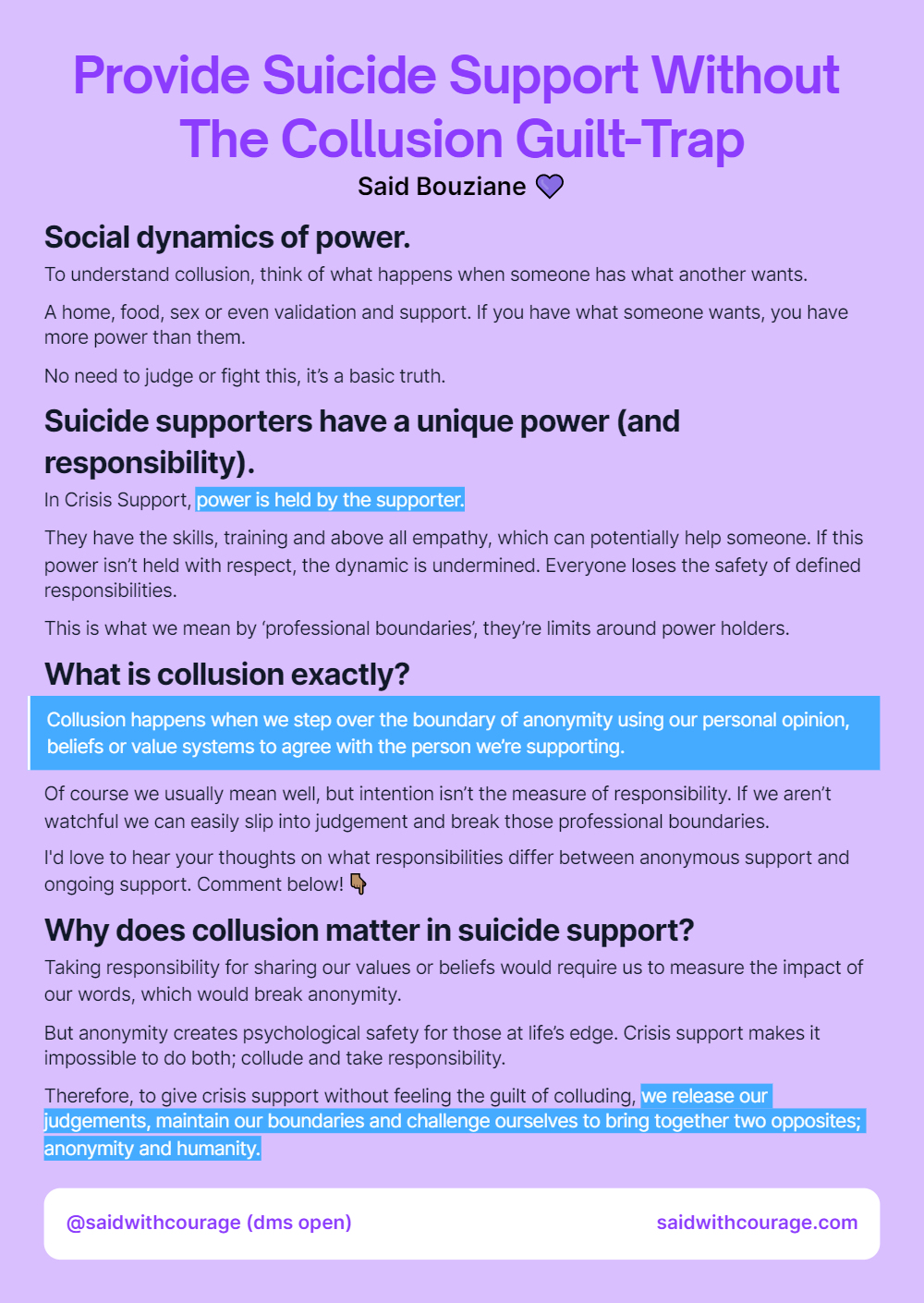Social dynamics of power.
To understand collusion, think of what happens when someone has what another wants.
A home, food, sex or even validation and support. If you have what someone wants, you have more power than them.
No need to judge or fight this, it’s a basic truth.
Suicide supporters have a unique power (and responsibility).
In Crisis Support, power is held by the supporter.
They have the skills, training and above all empathy, which can potentially help someone. If this power isn’t held with respect, the dynamic is undermined. Everyone loses the safety of defined responsibilities.
This is what we mean by ‘professional boundaries’, they’re limits around power holders.
What is collusion exactly?
Collusion happens when we step over the boundary of anonymity using our personal opinion, beliefs or value systems to agree with the person we’re supporting.
Of course we usually mean well, but intention isn’t the measure of responsibility. If we aren’t watchful we can easily slip into judgement and break those professional boundaries.
I’d love to hear your thoughts on what responsibilities differ between anonymous support and ongoing support. Comment below! 👇🏽
Why does collusion matter in suicide support?
Taking responsibility for sharing our values or beliefs would require us to measure the impact of our words, which would break anonymity.
But anonymity creates psychological safety for those at life’s edge. Crisis support makes it impossible to do both; collude and take responsibility.
Therefore, to give crisis support without feeling the guilt of colluding, we release our judgements, maintain our boundaries and challenge ourselves to bring together two opposites; anonymity and humanity.

